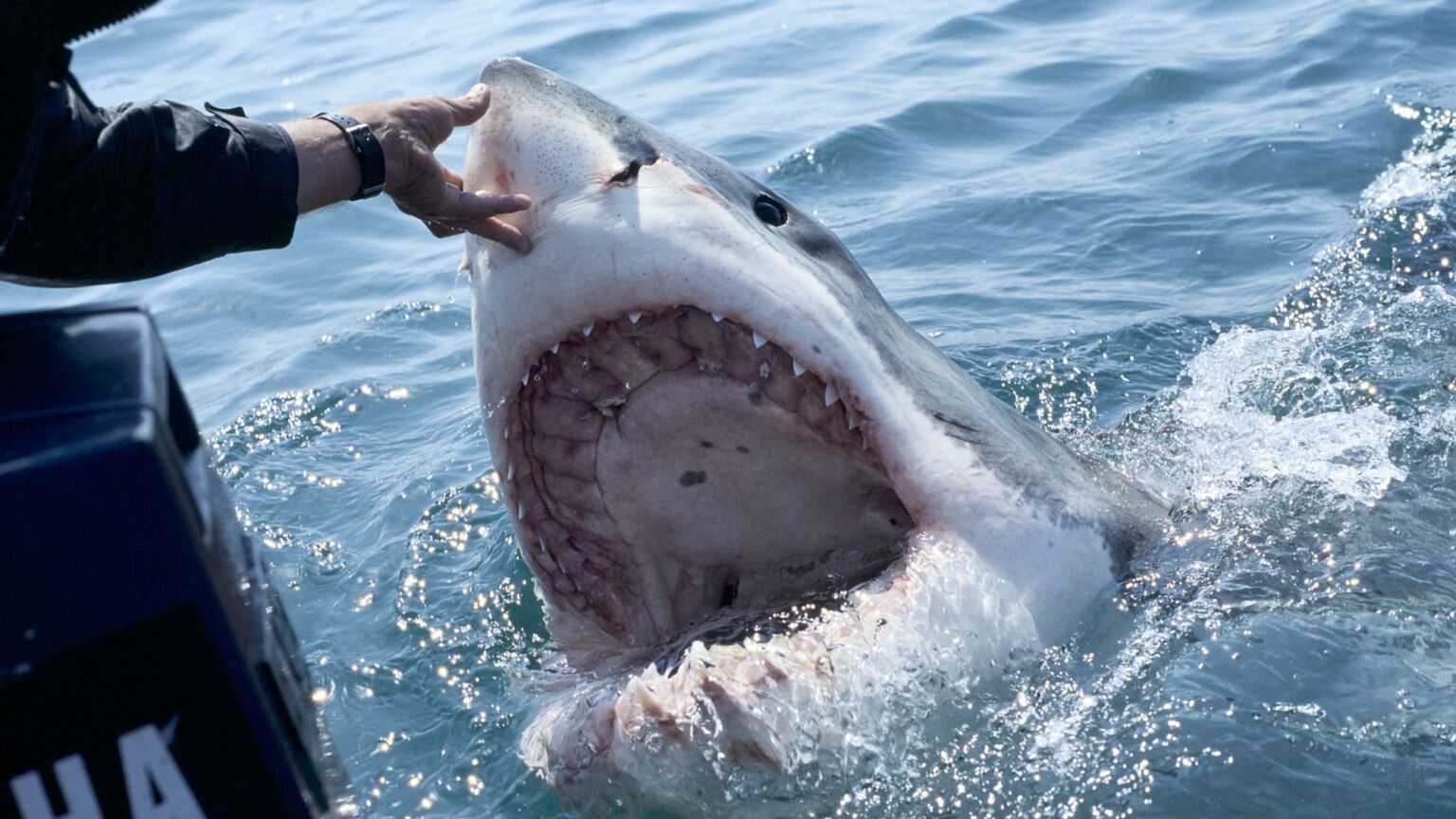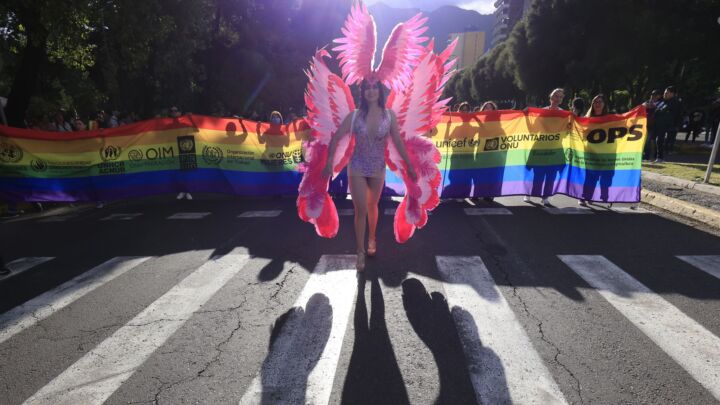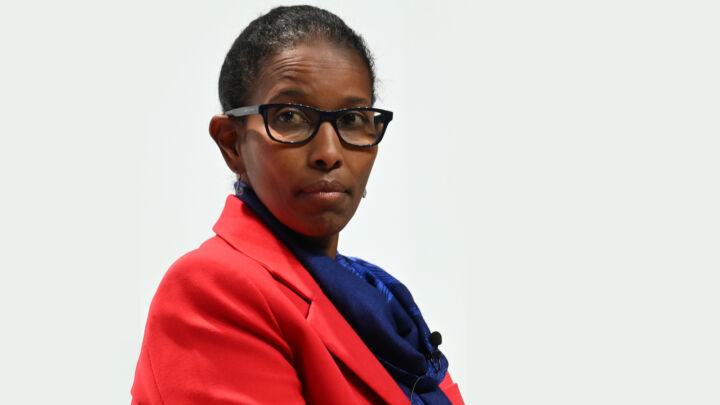Australia must declare war on the great white shark
Environmentalists' reverence for these deadly beasts is putting human life at risk.

Want unlimited, ad-free access? Become a spiked supporter.
Whenever kangaroos, koalas, emus or other native animals become too numerous in Australia, the government quietly goes about culling them. Licences are issued, traps are set, rifles are loaded and, in some cases, helicopters are fired up to keep the numbers of these species at manageable levels.
For the vast majority of Australians who live in cities, this happens out of sight and out of mind. To the extent that they are aware of it, it is accepted as a regrettable but necessary way of keeping the environment in balance.
One species, however, enjoys a seemingly perpetual immunity from any form of control – namely, great white sharks, the biggest and most lethal of all shark species. These predators have been protected in all Australian waters for 25 years, and are now, according to many fishermen around the vast coastline, out of control.
The cost of this is horrific. There have been 21 fatal shark attacks in Australia in the past five years alone, with great whites responsible for 19 of them. There have been dozens more non-lethal attacks, many of them permanently life-altering in their severity. Yet politicians and ‘experts’ are stubbornly refusing to contemplate lifting the protections enjoyed by great whites, let alone authorising a cull.
The consequence of this for Australian tourism is almost certainly high. The probability of a tourist being attacked by a shark in Australia is still infinitesimally tiny, but that doesn’t mean it doesn’t factor into the decisions of Europeans contemplating a holiday in our region.
After all, Thailand has more exotic beaches, and Indonesia has better surfing conditions. Both of them are significantly cheaper to visit than Australia. Why would anyone bother going the greater distance to Australia, where there is an added risk of encountering one of what the locals call ‘men in grey suits’?
This calamity reveals an uncomfortable truth about modern Australia. Far from being the ruggedly pragmatic adventurers we were once viewed as, we are becoming a nation of environmental zealots. We have developed a strange loathing for everything that once made Australia a free, prosperous and exciting place to live. Indeed, Australians once saw this unique island continent as a wild, inhospitable place, and proudly accepted the challenge of taming it. These days, however, it’s viewed as a fragile ecosystem that will punish us for daring to disrupt its delicate balance.
The protection of great whites is typical of this attitude. Killing koalas, kangaroos and so on is reluctantly accepted because these creatures symbolise the old Australia – the one where tourists were sold souvenir boomerangs decorated with cartoonish images of funny-looking fauna.
The great white shark, on the other hand, symbolises the new Australia of environmentalism. Worshipping the environment in Australia comes with a pagan-like awe for nature’s powerful extremes – from sunburnt desert to flooding plains. Nothing embodies this as neatly as the ferocious great white. Its eyes are mysteriously black, its body sleek and muscly, and its jaws as destructive as anything else Mother Nature has created.
You now encounter this love of sharks nearly everywhere you look. Facebook has dozens of pro-shark groups, each with hundreds of thousands of members, where posts are constantly appearing that describe great whites as ‘majestic’, ‘graceful’, ‘awesome’ and even ‘intelligent’.
Revering sharks is now seen as the responsible, intellectually serious position to take. In his 2009 book, Shark: In Peril in the Sea, author David Owen said – unironically – that sharks ‘have much to teach us about the art of survival’. James Woodford described great whites as a ‘work of art’ in his own popular book on the subject, Great White. An exhibition about sharks at the Australian Museum in Sydney in 2022 even endowed sharks with the equivalent of university degrees, describing them as ‘ecosystem engineers’ that ‘modify the ecosystems in which they live’. I confess that I find this pagan-like adulation for dumb, murderous animals baffling.
I’ve been writing about the horrific toll of this new reverence for marine predators for 10 years now. Having had little noticeable effect on public sentiment, I decided to go all out and produce a documentary about it, which I posted to YouTube this month.
In it, I tested Australians’ attitudes towards sharks by walking along the promenade at Manly Beach, Sydney, wearing a billboard asking passers-by to ‘support the campaign to cull sharks and save lives’.
Audacious, I admit. But the response was just as I expected: not one person supported the idea. Everyone who spoke to me thought there was simply nothing that could be done to prevent shark attacks because the ocean is ‘their home’ and they are crucial to the marine environment. This argument doesn’t seem to apply to koalas and kangaroos, largely because they don’t command the same reverence and respect as man-eating sharks.
How Australia responds to this worsening crisis will determine what sort of country it wants to be – one that thinks that enjoying the natural wonders of this beautiful island continent should come with an unnecessarily high risk of being eaten alive, or one that rates human lives, and happiness, above the life of a dangerous, unpredictable and stupid animal.
Fred Pawle is a journalist and the author of Die Laughing: The Biography of Bill Leak.
£1 a month for 3 months
You’ve hit your monthly free article limit.
Support spiked and get unlimited access.
Support spiked – £1 a month for 3 months
spiked is funded by readers like you. Only 0.1% of regular readers currently support us. If just 1% did, we could grow our team and step up the fight for free speech and democracy.
Become a spiked supporter and enjoy unlimited, ad-free access, bonus content and exclusive events – while helping to keep independent journalism alive.
———————————————————————————————————————————–
Exclusive January offer: join today for £1 a month for 3 months. Then £5 a month, cancel anytime.
———————————————————————————————————————————–
Monthly support makes the biggest difference. Thank you.










Comments
Want to join the conversation?
Only spiked supporters and patrons, who donate regularly to us, can comment on our articles.